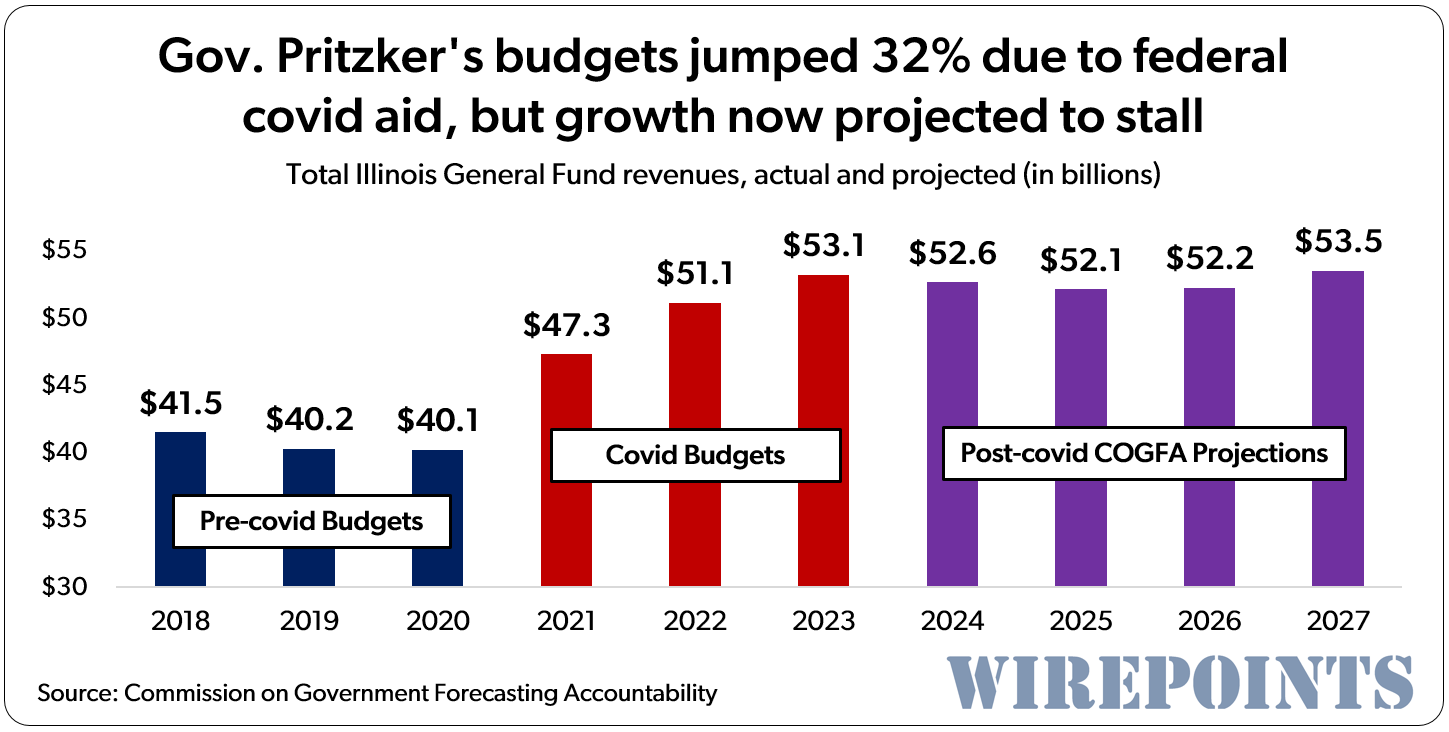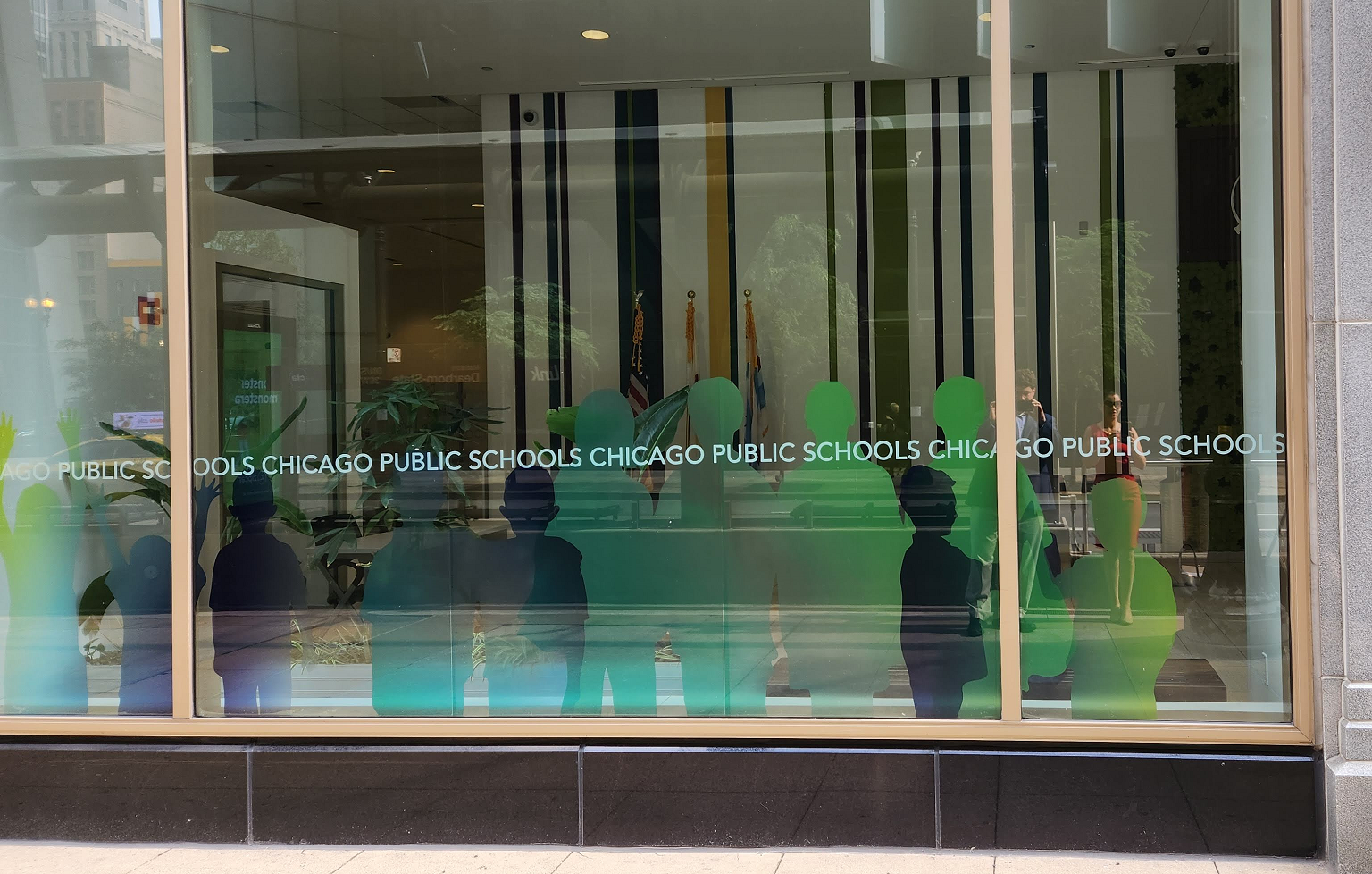By: Dalton*
The Seinfeld-inspired Festivus holiday has launched a bold new tradition of airing one’s grievances at the end of the year. And a Festivus-style airing of grievances is a tailor-made tool to take on the state of Chicago policies and politics.
In the immortal words of Frank Costanza:
“The tradition of Festivus begins with the airing of grievances! I gotta lot of problems with you people. Now, you’re going to hear about it!”
The list below captures certain issues that get to the essence of why Chicago’s politics and finances are so screwed up.
- Chicago City Council members whined like children when they missed out on cheap tickets to the World Series.
Chicagoans had a lot to cheer about this fall as the north side’s beloved Cubs batted, fielded and pitched their way towards their first championship since 1908. But city council members were busy whining instead of cheering when an ethics panel ruled that they could not receive World Series tickets on the cheap in a special deal from the Cubs.
City council members, known as aldermen, earn about $115,000 per year for their part-time gig. When Ald. Milly Santiago found out she couldn’t receive cheap tickets she claimed “I’m a poor alderman, I cannot even afford to buy a $1,000 ticket.” Ald. Proco Moreno lamented “It’s ridiculous that 49 other aldermen…can’t buy tickets at face value if the Cubs so choose to do that.” Ald Beale whined that it seemed unfair that aldermen received a special ticket deal during the White Sox 2005 championship run, but ethics rules prevented the same from happening in 2016.
There you have it: a mini-meltdown by city council members because they couldn’t receive thousands of dollars in perks. Yet city council lost its feistiness three weeks later when they voted unanimously to pass a city budget without any of the structural spending reforms that would stave off eventual bankruptcy.
- Last year, Faisal Khan was let go from his position as Chicago Legislative Inspector General. This year, his investigative work looks like it’s paying off.
Faisal Khan, the former New York prosecutor who became a thorn in the side for Chicago’s unscrupulous city council, rode into town in 2011 on a mandate to clean up city council and investigate ethics violations. Khan was then systematically stonewalled by a city council uninterested in allowing the investigator to actually perform his job. Khan was let go at the end of 2015, and he turned over his investigative work to the FBI.
The boom has since dropped on Ald. Willie Cochran, who was recently indicted, apparently as a result of Khan’s work. The same too for Ald. Brendan Reilly, whose Chief of Staff resigned apparently as a result of alleged legal and ethics concerns uncovered by Khan’s new group. Khan now heads the private non-profit watchdog Project Six, and has said he expects more indictments to come.
Kudos to Chicago City Council for having only one alderman indicted this year, because next year might be worse. And kudos to Khan for doing his job with such honesty that a Chicago government built on lies was forced to show him the door. Best of luck to him at Project Six.
- Chicago taxes go up $1700 per family yet pension debts continue to spiral out of control.
Since Mayor Rahm Emanuel took office in 2011, taxes are up by $1,700 per year on the average Chicago family. The short-term gusher of cash from taxpayers temporarily puts off the day when city council will to have make difficult decisions to change collective bargaining agreements and public pensions. However, the preference for tax hikes over structural spending changes makes the city’s bankruptcy more likely, not less.
Yet pension debts continue to spiral out of control. In 2016, Chicago’s official pension debt increased by $11.5 billion, and the city continues to make far lower contributions than actuarially required.
Meanwhile, a release of Mayor Emanuel’s secret emails shows he dismissed a Wirepoints article that called for the very types of spending reforms necessary for the city to have a sustainable financial future.
- City council banned thin plastic bags. This predictably resulted in thicker plastic bags being used. City council then taxed the thicker bags.
Do you want plastic bags banned? Do you want them taxed? In Chicago, you get both.
To understand the screwed up approach to taxing and regulating the private economy in Chicago, this is a story to consider. First city council banned thin plastic bags from grocery stores. Then grocery stores replaced them with thick plastic bags. Then Chicago passed an ordinance to tax the thick plastic bags at $.07 per bag.
Plastic bags cost grocery stores $.02 to $.05 each. The Chicago tax on plastic bags is going to cost more than normal plastic bags are worth.
- Uber launched driverless cars in Pittsburgh. The next day, Alds. Burke and Beale submitted an ordinance to ban them in Chicago.
Chicago has a long history as a center of transportation innovation, serving as the hub where east meets west. And Chicago can capitalize on emerging technologies by becoming America’s transportation hub of the future. But some powerful council members want to ban innovation.
Hours after Uber launched driverless cars in Pittsburgh, two Chicago aldermen introduced an ordinance to ban them in Chicago. How’s that for leveraging the city’s historical advantages as a transportation center? The aldermanic reaction reinforces a crystal clear message emanating out of city hall: innovation is only wanted here if it doesn’t disrupt any incumbent industries. Innovators (and taxpayers), go elsewhere.
- While crime spikes, city governance makes it harder to get a job.
Chicago has 730 murders on the year, more than New York and L.A. combined. Meanwhile, the city has raised taxes, raised the minimum wage to $13, enacted additional restrictions on ridesharing, banned new charter schools which disproportionately benefit low-income and minority neighborhoods, and enacted numbers of other measures to make it more difficult to attract investment and job creation.
Here’s hoping that 2017 will offer less material for a Festivus-style airing of grievances than 2016 did, because the above list could easily be continued. There’s no shortage of material.
Chicago is one of the greatest cities in the world. It’s time for those who govern the city to treat it with the respect that a city with such a rich history and tremendous potential deserves, or get out of the way for leaders who can step up and solve the city’s problems.
*”Dalton” is a pseudonym for an individual known to us here at Wirepoints. As part of our expansion we expect to running more guest articles like this and some will be from authors we respect who are accurate but who wish to remain confidential for personal reasons.

 Ted was on The Chicago Way with John Kass and Jeff Carlin to discuss the proposed $5 billion lakefront stadium project proposed by the Chicago Bears & Mayor Brandon Johnson, why Chicago is struggling compared to other metro areas across the country, why the city might or might not go the way of Detroit, and more.
Ted was on The Chicago Way with John Kass and Jeff Carlin to discuss the proposed $5 billion lakefront stadium project proposed by the Chicago Bears & Mayor Brandon Johnson, why Chicago is struggling compared to other metro areas across the country, why the city might or might not go the way of Detroit, and more. Some Illinois lawmakers continue to deny that covid aid and other federal stimulus bailed the state out of its fiscal mess. But a look at past and projected revenues from COGFA shows just how much the bailouts blew out the state’s revenues. And now that they’re over, how much harder it will be for Illinois revenues to grow.
Some Illinois lawmakers continue to deny that covid aid and other federal stimulus bailed the state out of its fiscal mess. But a look at past and projected revenues from COGFA shows just how much the bailouts blew out the state’s revenues. And now that they’re over, how much harder it will be for Illinois revenues to grow. Election integrity – both real and perceived – is essential to government’s legitimacy and stability. Illinois, like the rest of the nation, better fix its problems now.
Election integrity – both real and perceived – is essential to government’s legitimacy and stability. Illinois, like the rest of the nation, better fix its problems now. Ted joined Dan and Amy to talk about Chicago’s latest bond offering, why Chicago’s dismal home value growth is due to poor policies, the next $70 million to be spent on migrants, the 9% salary hikes demanded by the CTU, and why Illinois lawmakers voting to stop Chicago’s selective enrollment schools from being closed is hypocritical.
Ted joined Dan and Amy to talk about Chicago’s latest bond offering, why Chicago’s dismal home value growth is due to poor policies, the next $70 million to be spent on migrants, the 9% salary hikes demanded by the CTU, and why Illinois lawmakers voting to stop Chicago’s selective enrollment schools from being closed is hypocritical.